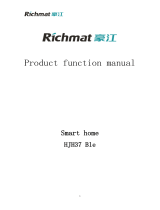
iii
Important information about your Toyota
Occupant restraint systems
Toyota encourages you and your family to take the time to
read Section 1−3 of this Owner’s Manual carefully. In terms
of helping you understand how you can receive the maximum
benefit of the occupant restraint systems this vehicle pro-
vides, Section 1−3 of this Owner’s Manual is the most impor-
tant Section for you and your family to read.
Section 1−3 describes the function and operation concerning
seats, seat belts, SRS airbags and child restraint systems of
this vehicle and some potential hazards you should be aware
of. These systems work together along with the overall struc-
ture of this vehicle in order to provide occupant restraint in
the event of a crash. The effect of each system is enhanced
when it is used properly and together with other systems. No
single occupant restraint system can, by itself, provide you or
your family with the equal level of restraint which these sys-
tems can provide when used together. That is why it is im-
portant for you and your family to understand the purpose
and proper use of each of these systems and how they re-
late to each other.
The purpose of all occupant restraint systems is to help re-
duce the possibility of death or serious injury in the event of
a collision. None of these systems, either individually or to-
gether, can ensure that there is no injury in the event of
collision. However, the more you know about these systems
and how to use them properly, the greater your chances be-
come of surviving an accident without death or serious injury.
Seat belts provide the primary restraint to all occupants of
the vehicle, and every occupant of the vehicle should wear
seat belts properly at all times. Children should always be
secured in child restraint systems that are appropriate for
their age and size. SRS (Supplemental Restraint System) air-
bags are, as their names imply, designed to work with, and
be supplemental to, seat belts and are not substitutes for
them. SRS airbags can be very effective in reducing the risk
of head, chest and knee injuries by preventing contact of the
head, chest and knee with interior portions of the vehicle.




















